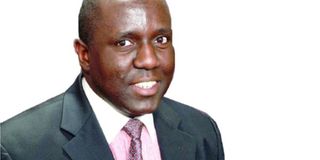Launch of Kenyan SGR welcome news for East Africa

Karoli Ssemogerere
What you need to know:
- Down south, there may also be a clash of ideology.
- The crony capitalism of Uganda is out of tune with Magufuli’s aggressive expunging the thief ideology and high transparency standards.
Yesterday was a big East African day when Nairobi launched the 500km first part of the Standard Gauge Railway that will run from Nairobi to East Africa’s biggest port- Mombasa. The second stretch the Uganda Railway from Nairobi to the Ugandan border is yet to be built. Uganda’s SGR is still far behind. Compensation claims on the Ugandan side are prompting changes in the law governing exercise of eminent domain. The Ugandan project is shrouded in mystery. On paper, it has a national network of 39 stations which may not be achievable and whose costs may outweigh its economic benefits based on current estimated project. Mombasa-Nairobi has just 16 stations, a big savings on the cost of construction, electric and rolling stock.
The cost of road freight from Mombasa to Kampala is the same as sea freight cost from Western Europe (Felixstowe, Rotterdam) to Mombasa. This cost is built into the cost of both exports and imports. Freighters’ costs will tumble when trains start moving cargo inland reducing the wear on the roads. By the time the Kampala-Jinja 75km Expressway is completed, the current Jinja-Tororo-Malaba highway will have outlived its usefulness.
Kenya’s standard gauge may be criticised on many fronts. The trains are not travelling at European speeds. Trains regularly achieve speeds of 180km-200km/hour in Western Europe or as high as 300km/hour in Japan and the Chinese Maglev train clocks up to 420km on the magnetic tracks in Shanghai and other big cities. The SGR will run just 120km/hour a speed unachievable on the quality of road surfaces we have in East Africa. Buses and trucks in Kenya run just 80km/hour. Translate that to Uganda where traffic snarls around the major commercial arteries at just 5-10km/hour then you have a proper picture. SGR-Kenya will have 80,000 employees or 5.5 per cent of Uganda’s workers contributing to NSSF from just one employer!
Uganda’s harambee turn South may have been driven more by panic and emotion but the economics may not work out well in the long-run. For starters, Uganda does more business with Kenya than Tanzania. Tanzania is growing faster than Kenya but is growing towards the South and West where its key mineral resources are. The northeast conurbation in the Kilimanjaro region is already right next to Kenya. Uganda has not yet articulated how it intends to pay for the railway.
Kenya has borrowed significantly but has the flexibility to do so. Its economy is much bigger and as Uhuru candidly noted recently, is not like Uganda where up to 40 per cent of the resource envelope is externally funded. Uhuru perhaps knows more about Uganda because his family is one of the big foreign investors here with interests in banking and agriculture.
Down south, there may also be a clash of ideology. The crony capitalism of Uganda is out of tune with Magufuli’s aggressive expunging the thief ideology and high transparency standards. Tanzania started by cancelling the previous SGR contract with the Chinese, which it wants to award to a Turkish-Portuguese consortium at a fraction of the cost. The crude oil pipeline has gone south. Will Uganda in addition connect to the Tanzanian SGR? The Tanzanian rail ambitions are currently curtailed by money. The World Bank provided just $120 million for rehabilitation of the central line. Information about Tanzanian public finances is scanty so it is unclear whether TZ will go to the global capital markets for funding.
The Kenyans are not angels in their custody of public funds. For a long time, the joke was that being a minister in Kenya for a month was equivalent of being one in her poorer neighbours for years. Their great offices of State still carry a lot more authority than say Uganda. But by some stroke of luck, amid a monopoly of opportunities by the few, is a hunger for achievement. Infrastructure implementation has not been a problem. For strugglers like Kenya Airways, the threat of being labelled a Ugandan enterprise may be threat enough not to sink entirely.
Mr Ssemogerere is an Attorney-at-Law and an Advocate. [email protected]




